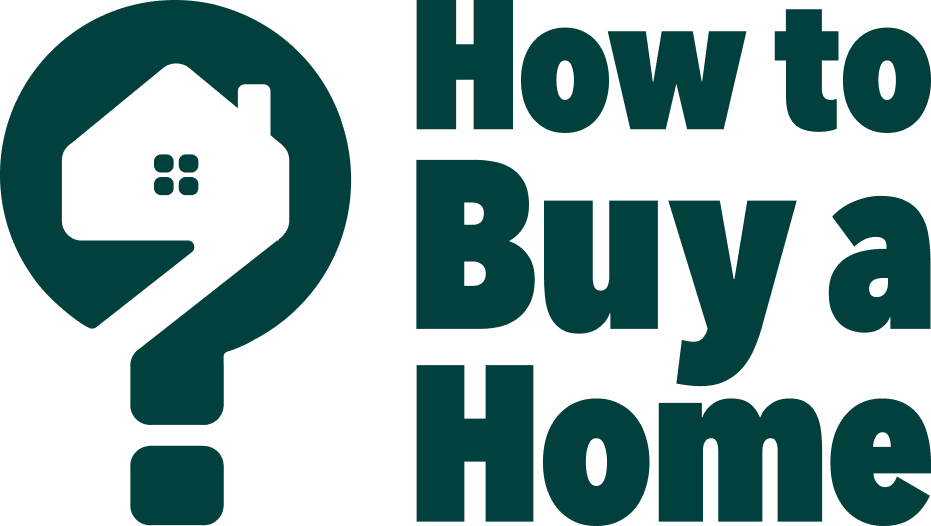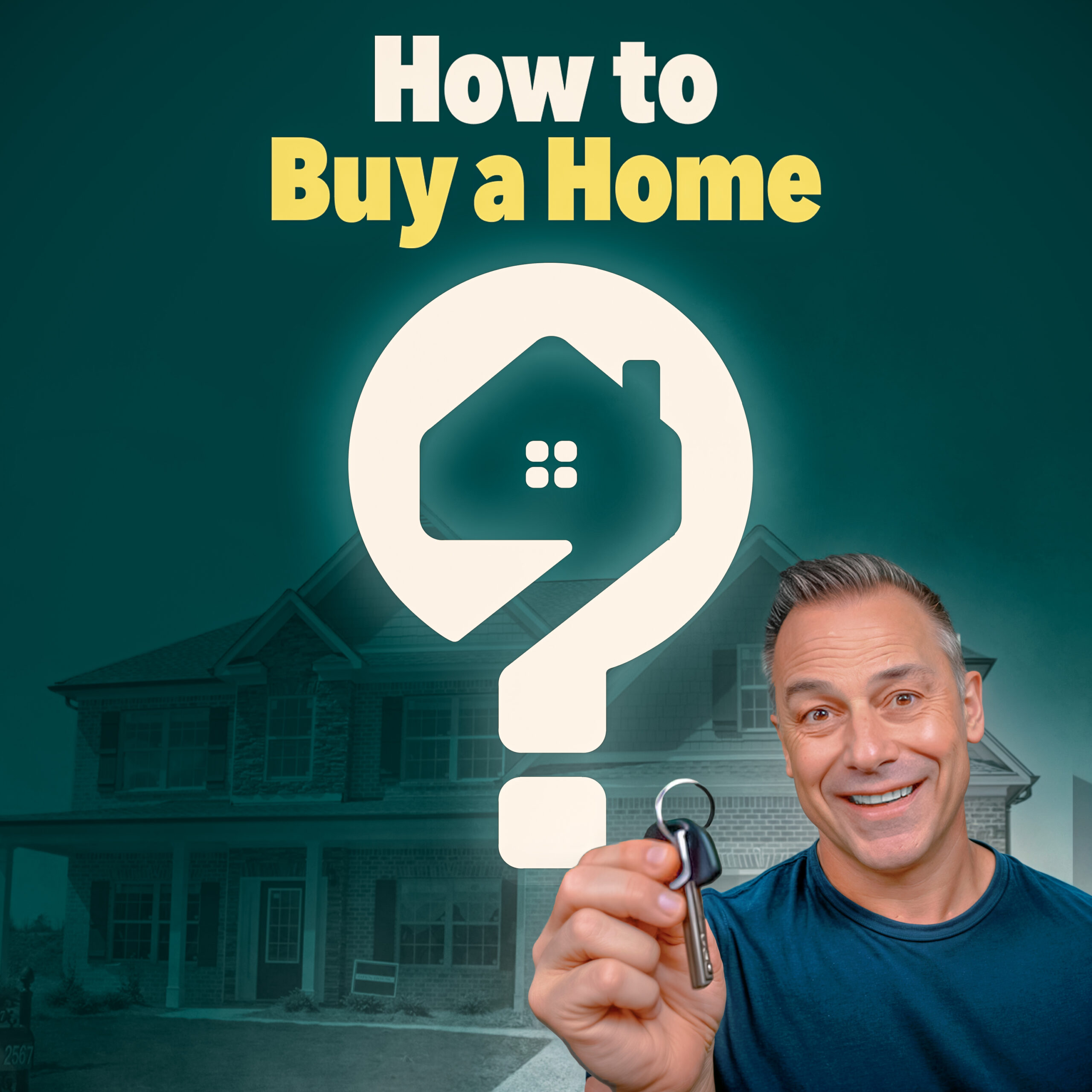
Moving to a big city takes a lot of work and not to mention a lot of money. Living comfortably in a big city is a dream for many even. For first-time home buyers Andre and Lenay, this is something there were able to achieve on a non-movie star budget as they moved to Hollywood, Los Angeles, California – the home of the movie stars. Tune in on this episode to know how they did it!
—
Interview With First Time Home Buyers – Planning For Expensive Cities
How To Make A Purchase In Expensive Areas When It’s Your First Home Purchase
Living in Hollywood can be expensive. Andrew and Lanae moved to the land of showbiz to live out their dreams and work in the glamorous world of entertainment. They discovered that living there was going to end up costing them $2,300 a month for a tiny little one-bedroom apartment. This is their story of trading in that ludicrously high rent for that teeny little apartment to get their dream home that was adjacent to the city of dreams. Here we go.
—
We have got Andrew and Lanae. Tell everybody, where are you guys?
We are in Claremont, California.
For people who don’t know, because we are a gigantic state, I know where Claremont is because of where the Candlelight Pavilion Theater is. That’s my sad life. Tell everybody where Claremont is.
It’s the most Eastern part of Los Angeles. It’s like the very edge of Los Angeles County.
The interviews, people love to hear these. We have had a couple of nineteen-year-olds that I have interviewed who purchased their first home, which is amazing. You guys are in my neck of the woods. For those of you out there who are possibly looking at some expensive property, Andrew and Lanae can help you. They reached out to me, and normally, I have got friends in LA and the area up there. It takes a gigantic plan. You guys weren’t buying a little $100,000 house. Tell me about your journey to get to where you did some serious adulting.
For a while, we had been saving up for a long time. We never knew the exact numbers but we had known for a while that getting a house was something that we wanted, and we knew how expensive it was going to be. As soon as we started having an extra income, we started not being extremely frugal with it but being sure to save up a lot along the way over the years. When we were ready to look into it being like, “We have got some stuff, saved up. Now, what’s the next step,” was where we were.
Since the pandemic, we have had people that have options for moving someplace cheaper. Did you grow up in the area? Do you work in the area? What was the reason for staying in the expensive Southern California area for you guys?
We didn’t grow up in the area. We are both from New Hampshire originally, which is much cheaper but we came out here for work. Andrew works in and around Burbank in the film and TV industry. That was what we have centered around and what we are looking to stay around for commute times, availability, and whatnot. Claremont was the furthest we were willing to go for his commute that we could reasonably afford something that we wanted.
That’s the funny thing. It’s still Southern California, so still Los Angeles County. It’s still expensive but that is why we are far East.
Compared to where he works. It was more affordable for us.
You guys did the commute thing. There are a lot of people that do that for different reasons. Some people like acreage. You like not spending $2 million. How do you like Claremont? It’s a fun little town, isn’t it? Are you enjoying it? It’s one of the quainter places in Los Angeles.
We love it. Honestly, we have been so busy that we haven’t even fully been able to explore it yet, but whenever we do get out to do community things, we love it.
For us, it’s that perfect size of there’s a lot to do. It’s somewhere between a city and a suburb like between where we were living and where we grew up.
Were you guys city folks that did the whole, “I’m a grownup, I’m going to go live in a house with a picket fence at a cul-de-sac?” Where were you renting in Burbank? Where were you, in a city?
[bctt tweet=”Buying out here in Hollywood would just take a big chunk of change.” via=”no”]
North Hollywood. We were in the Arts District mostly for the years.
Lankershim/Magnolia?
Yes. Right there.
My wife lived there, and I lived right around the corner. I lived there before there was the train station there, old guy. There used to be a crazy sushi bar that was served by my underage friends. Tokyo Delve’s way back in the day. It’s not there anymore. It’s right next to the theater on Lankershim but they closed down because they served underage people. How long was the rental period for you? Was the plan, “We are always going to buy a house,” or did you get sick of the rent and then decide to reach out?
We were renting from 2013 until we bought. It was for nine years. It was less about the payment itself that we got sick making but more sick of what the apartment life was. Especially through the pandemic, our apartment complex decided that was a great time to do all the renovations. Being trapped in the tiny one-bedroom.
Working from home through construction.
Tell everybody what you were paying on average for that one-bedroom to live amongst the stars in beautiful North Hollywood.
That was $2,300 a month there.
Did you look at different down payment options or were you always trying to do a big chunk?
We were always trying to do a big chunk. We had been living with a roommate for a few years, and then we got our one bedroom. Through promotions or job changes, we decided to stay there and save up as much as we could because we knew buying out here would take a big chunk of change. A down payment was what we were building towards.
We did as we learned about the process that decision of like, “Are we putting down 20% or 10%?” Figuring that out was something we were fluctuating through a little bit. We ended up doing 15% down.
Expand on that for me, please, because there are people out there who think I am on crack when I tell them 15% versus 20% because they go, “What about the PMI?” If you are buying a larger place and again, we won’t divulge how much your place is but it wasn’t $300,000. Five percent of anything over $300,000 is a large chunk of change. Was having that money liquid a better plan for you and something that could easily offset paying the PMI? Was that your logic behind it?
The PMI wasn’t that much in the scheme. For us to even be able to afford this place, it was like that’s the way we can make it happen, and it’s not that big of a deal at the end of the day. If we had done the higher amount, we would have had to get a different house.
I say it all the time. PMI is insurance but it is there so that you can afford to purchase something now and you don’t continue renting a one-bedroom for $2,300. You are loaning yourself whatever it is that you need to pay. You guys were in the situation where you could go 15% or 20% but there are people that don’t want to put 5% down because they don’t want to put the PMI. I say, “How long is it going to take you to save 15%? How many months are you going to be renting?”

If it’s 5% on a $500,000, $600,000, $700,000, $800,000 or $900,000 house, that’s a big chunk of change. What were some of the other things that you learned about the process that you are together people and saving up your money? What was there anything that was surprising to you when you got into the whole process?
Other than the amount of paperwork, I don’t think we were prepared for that, to be honest. I went a little crazy trying to read through every single contract. At one point, we had to be like, “We need to trust our realtor and our lender, and maybe not read every line.” Other than that, how easy it was because we did love our realtor and our lender and how easy they made it. Both of them but the lender, in particular, put all of our numbers out there.
It seemed like night or day, I texted or emailed like, “What if we tweak this and that number?” They are like, “Here’s the whole spreadsheet of what that would look like.” That was so helpful and calming because we were anxious about how do we even figure out what we can afford because we didn’t know.
To reiterate, that was not an online mortgage broker or a Rocket Mortgage.
No.
It was California Coastal Loans how we did it.
Andrew and I had talked forever. We had the whole showbiz and North Hollywood connection and went through this. I knew that having that lender that there are two different ways you buy a house. You figure out what you could buy, and you buy it. When you are in Los Angeles, Chicago, New York, and any place expensive, it’s figuring out, “What my options are. Can we even pull this off?”
There has to be creativity, and you are not going to get that when you are talking to your online folks. They are going to be 9:00 to 5:00-ers. They are seeing what you get. They punch in your numbers and send them to you. I will say one of the great things about using a lender like that. Was it Dino or Mario that was sending you stuff on the weekend?
Yeah. It was Dino.
They have got that stuff on lockdown. I have seriously called them while they are out to dinner but they know what to do. They have the template ready, re-punch the number, and send it to you. They have spent all this time creating client-friendly software and the ability to be able to reach out to you.
As far as the paperwork goes, Lanae, I totally feel you on that. You got to get ready. The first fourteen days are a tsunami of stuff that comes at you fast. I tell people all the time, “Anything that’s in black and white, that’s standard but look for the parts where I typed something in. That’s the part that you have to read.”
We started following the CliffsNotes at some point.
Do you have any tips for people out there besides getting ready for your head to hurt and buying some Excedrin for all the contracts you have to read?
One thing went a long way for us, other than having a great lender and realtor. That was huge. It was having confidence when you knew you had found the house you wanted. I still feel that a big part of what helped it work out for us was as soon as we saw the listing and knew it looked good in the pictures, it looked promising that we made a point to go see it as soon as possible. Getting in there as fast as we could, so we were one of the first people to see it, and then we got to walk around and be like, “It’s even better than it was in the pictures. Let’s move now as fast as we can.” Trying to go as fast and then that’s what the realtor and lender helped that process go quickly.
[bctt tweet=”No matter what the market is doing, if your team is professional, they know how to adjust.” via=”no”]
We were shocked by how fast it went but they helped us be prepared that when it was right, we could just go.
That’s what I explained to people. No matter what the market is doing, if your team is professional, they know how to adjust. I know the lender charges a $250 penalty if they don’t close on time. That looks awesome to the listing agent. It’s like, “I didn’t find these guys in an open house and get them pre-approved.” We are legit being able to do the shorter timeframes.
That preparation, I know what it is. Explain to me how you felt. What got you to that confidence level? Was it because you spent some time looking at some other homes, you narrowed in on a certain place, and then when you saw something you knew? You’ve done the research before. I’m answering for you, so why don’t you answer? Why were you confident?
We spent a lot of time with each other talking about our priorities and the things that we knew we wanted and not the other. Being able to practically see with a specific listing like looking at one and being, “This does have these things and not this. Is this one of those things we would go for?” It’s being able to work through those scenarios ahead of time, so then when you see the one, we feel confident.
It was a lot of like, “Could we make this housework? How could we make this housework for us on our needs?” Finally, getting to one where we are like, “That works.” We don’t have to get creative like, “We can use this as a room or whatnot. That checked all of our boxes.”
I tell my buyers when we see our first house, “Tell me everything you love about this but tell me everything you hate.” A lot of times, I walk in and go, “I’m not feeling this one.” I’m like, “Great. I need about 50 more bullet points.”
That was one thing our realtor did. She had a website where she would send us the listings, and we could look on our own time, and then there were a bunch of different boxes you could check like what you did and didn’t like. It was nice to know that she was taking that feedback onboard for us, too.
It’s different all over the place. They use a different MLS up there than we use down here but I have a notes thing and my people will, in the middle of the night, write stuff, and then I will write stuff back in the middle of the night. I can always tell, “Did you have a bunch of wine before? You got snarky here.”
Anything that you would warn people about? Did you have any bad experiences or was everything so awesome? I love that unicorn team. They are awesome up there. Was there anything that you would want to say like, “Make sure besides the contracts that you are watching out for this stuff?” How has it been moving in? How has the house been? If you had anything post-moving in? I see a nod.
That was one thing to be aware of for us. The big thing was our place was renovated right before we got it, so it had this look to it that looked like everything was perfect. You get the inspection done as part of the process that noted certain things here and there but nothing crazy after moving in, noticing things like electrical issues.
Things that the inspector was like, “You’ve got plenty of electricity to power the house as it is.” It’s like, “Cool, but the house is empty, and we are working from home part-time. We have the AC.” It’s an older house, so we ran into problems with short circuits and had someone come out and he was like, “You don’t have enough power for a modern house with all the stuff you are going to add. We should probably update your entire electrical panel.” There was that.
Was that a few thousand bucks for that?
Yes, few thousand dollars.
Yeah. We were so proud. We had this little nest egg on top of our down payment to be like, “When we move in, we can buy furniture and some decorations,” and half of that was gone. That was also helpful to have that as a buffer for when you are like, “Living here, what needs work.”

You guys know I love doing this. You are close enough but I still referred you out. I’m not trying to get clients on this. I say a lot of things that bum people out. Have your renovation nest egg, and then be ready not to be able to use it a whole because you are going to fix electrical. It’s a three-hour inspection, and that’s a long time.
That’s the biggest thing I tell people all the time. What if they never use the half bathroom? What if they never had eight people over and had everything running all at once? It’s having that extra is better. I tell people all the time to stretch but don’t stretch so far that you don’t have any money left over. That’s going to be a big part.
I’m going to do a what to do after your first year, and we talked about that. I’m going to put that in there. Beautiful Claremont. I’m so excited. The next time I go up to see a show at the Candlelight Dinner Theater with one of my friends, I will drive by and wave at you. I promise. I will knock on the door and be creepy. This is very nice. I very much appreciate it. Thank you, guys. Congratulations on your new home.
Thank you so much, and thanks for all your help.
Thanks, guys.
—
I’m going to say it again, I love this job. Helping people who are trying to figure out how to get their dream house. Especially, in some ways, it seems so expensive like it is out here in Southern California. That warms my heart. It’s so exciting. Some great takeaways for you, it’s important for you to know that the contracts are going to be insane. It is a lot of paperwork, so be ready for it, prepare for it, and realize that the first week or two after you get your offer accepted, your part-time job, which sometimes can feel like a full-time job, is going to be doing all the paperwork to buy the house.
That means that you want to get all your planning done way ahead of time. That was something that they did. They spent a good chunk of time working with their unicorn, realtor, and lender but especially their lender going over their down payment options. Did you catch that? Fifteen percent worked for them as opposed to 20%. Once again, PMI is not the devil.
In this new world of remote working that commuting is something that a lot of people are figuring into buying their homes. If you are in a place that’s more expensive, this is something that you want to start thinking about. Something that you want to start looking into. Perhaps if you need that giant backyard or that extra bedroom, you can look for someplace that isn’t quite exactly in the more expensive city and get yourself out and find yourself something that fits more in your budget.
It’s a shameless plug but I’m not saying this because I’m saying go to my lender. Not all of you were in California. You are all over the place. I’m telling you this because this is my insider secret. Online lenders will not be there for you the same way as a local mortgage broker. The industry is changing all the time, and sooner or later, all these online companies are going to take over. That’s where I hear everyone on social media whining about the big corporations taking over.
I’m giving you the inside scoop. Take advantage of this while they are still out there. Mortgage brokers are becoming mom-and-pops now. They are getting eaten up by all the online advertising that’s happening but you are guaranteed better service. Most of the time, your local mortgage broker realizes that they are going to be competing with all the big guys out there. They can get you the same rates.
It’s a new and exciting world where everybody does everything on these fancy new things called computers. It doesn’t mean that online places can get you better deals. Your local mortgage brokers got a laptop right there. They can get you the same deal but they are going to get it to you with better service.
That was great, and I love to be able to interview you someday. If you want more information on how to get your own personal plan started, go to HowToBuyAHome.com. I don’t know when you are reading this, and you might be reading this far in the future. We have got brand new readers every day, and they are reading this back from 2019 when I was stuck in my living room.
We have got something very exciting for you there now. It’s the first of its kind. It’s the brand-new first-time home buyer starter kit. Finally, someone gives a damn about you, guys. I’m very excited about it. You can jump on there, and it’s going to walk you through all the first steps that you need to do. Everyone always asks me, “I want to figure out how to buy a home but where do I start?” This is where you start, the starter kit.
There are more tips, tricks, tools, techniques, hints, and inside stuff on YouTube. That’s the How to Buy a Home podcast on YouTube, and also you could find How to Buy a Home on TikTok. Some jokers out there on Instagram already took how to buy a home. I see you. You haven’t posted since 2018. If you look it for me on Instagram, look for @DavidSidoni. I’m not a narcissist. I couldn’t get How to Buy a Home. Please share this show. It’s for everyone, whether you are $100,000 or $1 million home that you are trying to buy. We have had some readers over $2 million that used the tricks from this show.
This is for everything. You could find your tools, techniques, and all the hints that you need, and most importantly, to help you make sure that you have a killer team so that you can get the dream of home ownership no matter your budget. The goal is to make this process dreamy, not nightmarey. Did I make up a word? I did. If you are renting out there and you’ve got a steady job, and your debt is not out of control, this is possible. Get your personal plan. You can do this.
Important Links
- California Coastal Loans
- HowToBuyAHome.com
- How to Buy a Home podcast – YouTube
- How to Buy a Home – TikTok
- @DavidSidoni – Instagram
This podcast was started for YOU, to demystify things for first time home buyers, and help crush the confusion. After helping first timers for over 13 years, I knew there wasn’t t a lot of clear, tangible, useable information out there on the internet, so I started this podcast. Help me spread the word to other people just like you, dying for answers. Tell your friends, family, and perhaps that random neighbor you REALLY want to move out about How to Buy a Home! A really easy way is to hit the share button and text it to your friends. Go for it, help someone out. And if you’re not already a regular listener, subscribe and get constant updates on the market. If you are a regular and learned something, help me help others – give the show a quick review in Apple Podcasts or wherever you get your podcasts, or write a review on Spotify. Let’s change the way the real estate industry treats you first time buyers, one buyer at a time, starting with you – and make sure your favorite people don’t get screwed by going into this HUGE step blind and confused. Viva la Unicorn Revolution!
Instagram @DavidSidoni
Tik Tok @howtobuyahome

